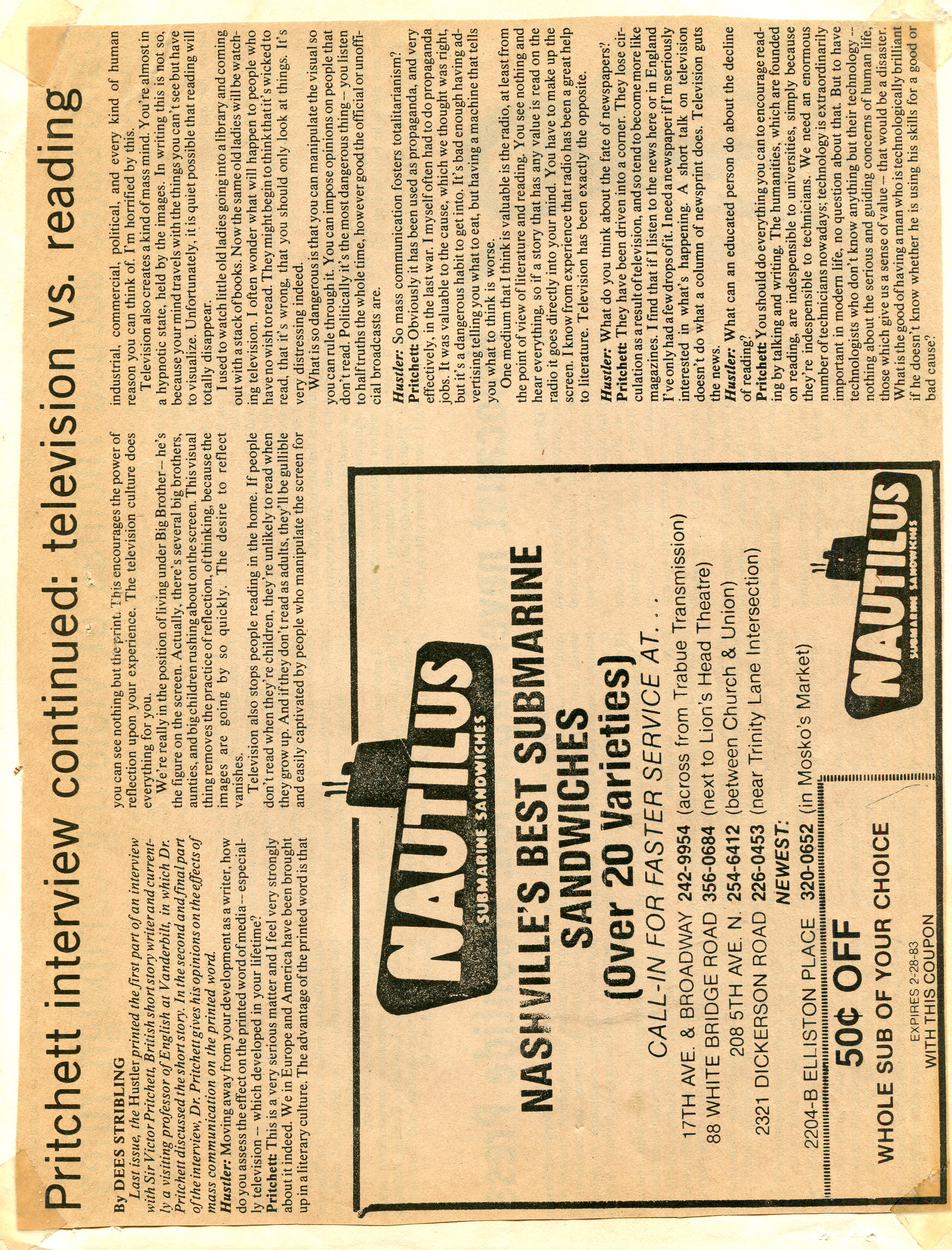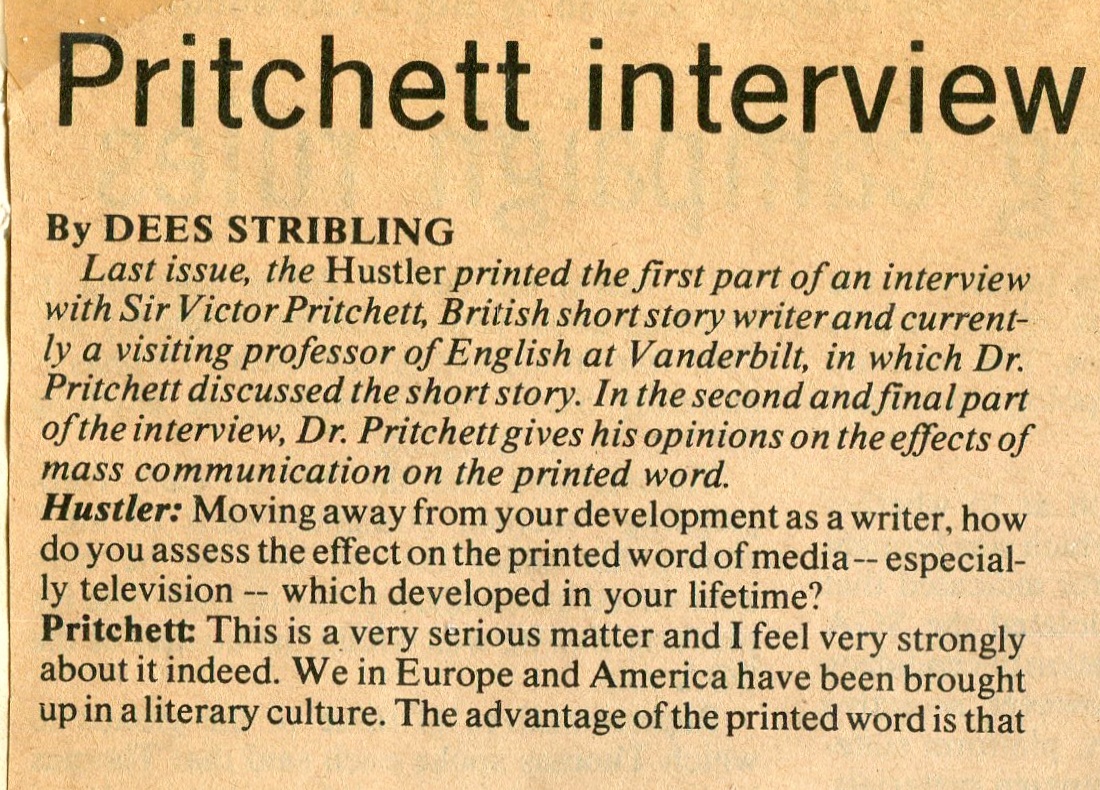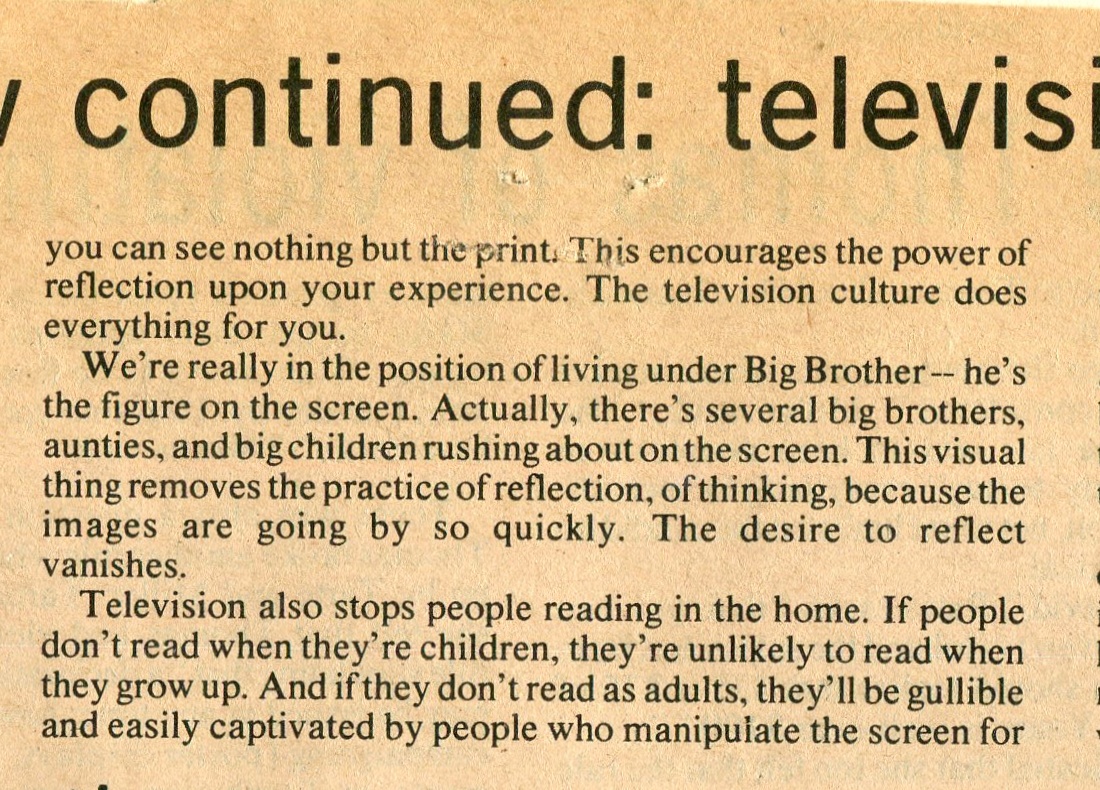The VU class that V.S. Pritchett taught in 1983 was fiction writing, which makes sense, since he was a fiction writer of renown and, presumably, Vanderbilt’s attenuated reputation for literature was still important to the English Department at the time. It’s hard to recollect much about the class, though. It’s been 40+ years, of course, but it’s more than that. To undergraduates, professors seemed to ply their trade from the perch of an advanced age, one that was hard to imagine. That didn’t always interfere with a student’s ability to absorb the material, however, provided the professor had some skill as a teacher.
Pritchett was 82. That was more than advanced; that was positively antediluvian, in my youthful estimation. I still feel that way a bit, though I know that advanced age doesn’t necessarily — or even that often — cut into ability in the intellectual arts. Regardless, aged or not, he wasn’t one of the great teachers that one encounters along the way. I’m not even sure he was that good. He seemed to like to listen to students read each other’s stories out loud – we wrote stories for the class, and read them, but not our own. I think. Then we talked about the stories in a meandering sort of way. He made comments, but for a writer of stories, didn’t seem to tell that many in class.
VU prof Walter Sullivan (d. 2006, curiously at 82), whose fiction writing class I’d taken in the fall of 1982, read student stories himself, ones he’d picked to illustrate some point, and then led the discussion. Not with an iron hand precisely, but the firmness of the former Marine that he was.
One student wrote a story about (again, I think) about a little girl and the death of a baby bird, or some such. Dr. Sullivan read it, and then thundered: “Don’t write stories about animals! Or little children! Short stories should be about grown men and women.”
Sullivan was, as I recall, the better teacher. Still, we liked Pritchett. But being in his class was something of a squandered opportunity. We were dense youth, so we didn’t really ask him many good questions. No followup about Orwell, as I’ve mentioned, even though Pritchett did tell us a snippet or two about him.
But here was a man who, for instance, remembered World War I as a youth (though not in the fighting) and who went to Paris in the 1920s as a young man, and who took a ramble through Spain and Ireland during that same decade. I wish I’d thought to ask about those things. Or what about the other writers that he knew? Or his opinions on such luminaries as Chekhov – he must have been thinking about him when he taught us, since he published Chekhov: A Spirit Set Free in 1989. Ah, well. At this remote time, all I can do is shrug.
This is the second part of my interview, published February 11, 1983.
Television was killing the printed word in those days; had been since Howdy Doody started shilling for Wonder Bread. Seems almost like a quaint notion now, its dumbing down role famously usurped by social media, though I’d say that TV is still in the game.
I have a collection of Pritchett’s short stories somewhere or other, and I dimly remember reading some of them. I also have a book of his literary criticism, Myth Makers (1981). I know where that one is. That’s pretty close to the time I interacted with him.
“Essays on major European and Latin-American writers of the nineteenth and twentieth centuries, by the distinguished English man of letters, include lucid, sensitive interpretations of Tolstoy, Dostoevsky, Chekhov, Flaubert, Stendhal, Kafka, Borges, and others,” notes the Amazon squib. I ought to get around to reading it.

